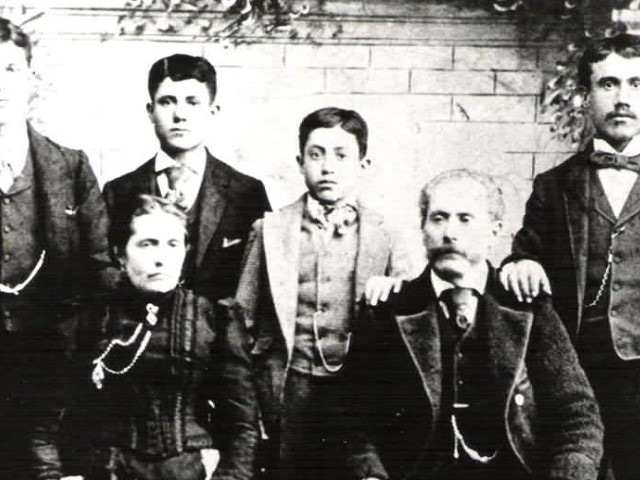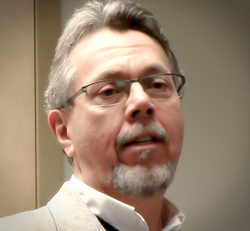|
I come from a family of immigrants. My maternal grandparents were both born in Italy. My grandfather Antonio – the stoic young man in the middle of the attached photograph – was born in Nusco, Italy in 1881 and came to America as a teenager. He prospered, becoming the first Italian engineer on the B&O railroad. His sister became a celebrated midwife who traveled to remote homes by railroad hand pump car to deliver the babies in her care. My paternal grandparents both hailed from the Ukraine and moved here in the early 1900s. My grandmother Anna, was a peasant girl growing up on a farm in Galicia Ukraine. She received her first pair of new shoes to emigrate to America as part of the massive peasant migration, fleeing the ravishes of economic collapse and poverty. Her husband – my grandfather Nick – was killed in a coal mine explosion in West Virginia when Anna was 25 years old. Now a single mom, she ended up cleaning offices during the night shift in order to keep food on the table for her five children. While my grandmother worked, my father - the oldest child - was responsible for ensuring that his younger siblings were safe, fed and did their chores and homework.
I’m proud of my immigrant heritage, but don’t believe it is remarkably different from most of the families now residing in our country. We are an immigrant nation. Unfortunately, while we are an immigrant nation, we are also one with a short memory. It seems that once we’ve settled in and become rooted in America, we forget about our immigrant past. Prior to the Civil War, there was a backlash against Chinese immigrants and against Catholics, especially those of Italian and Irish descent which sounds eerily familiar to what we are seeing today. The fear, hatred and actions are the same now as in the mid-1800s, only the focus has changed to those who are Muslim or of Hispanic heritage. There is plenty of data documenting that immigration is a net positive to the American economy and doesn’t create a drain on social programs. As for undocumented immigrants, it appears that they “contribute more to the system than they take out” according to a document from the Economic Policy Institute. Economists also show that massive deportation of undocumented workers would be astronomically expensive; would depress the economy and would harm - not help – job growth. The number of undocumented immigrants coming from Mexico has stabilized at about 350,000 per year since 2010, according to a Homeland Security publication, and just about as many leave each year. At least two-thirds of all unauthorized immigrant adults have lived in this country for a decade or more. While both documented and undocumented workers have a positive impact on jobs and the American economy, and the number of them entering the country is relatively flat, we still seem driven to aggressive deportation, creating hardships for them and their families. And here is where I see a moral dilemma. The impact on the kids and their families can be devastating. Families are ripped apart and children are sent to foster care, or their mothers become single moms who must struggle to survive. The children themselves experience trauma and live in fear of separation from their remaining family. Many become anxious and begin to do poorly in school. And then there are financial consequences to the family in terms of lost earnings and other unforeseen expenses. It just seems that we are tearing apart families, traumatizing women and children for no other reason than to make a political point. Certainly, it is within the legal purview of the government to round up and deport illegal immigrants, but is that the moral thing to do? Is that the call of our better selves as a people? Is that who we aspire to be as a country; one that punishes families in order to advance political careers? Is that what we hear from the call of God deep within our souls? I think not. We are all strangers and guests passing through this world. Showing those pilgrims among us love, respect and abundant mercy is a lesson I learned from my immigrant ancestors and my parents. Loving our neighbor is the second of the two greatest commandments in the gospel. If only our immigration policy would mirror these examples.
0 Comments
Your comment will be posted after it is approved.
Leave a Reply. |
AuthorMichael Soika has been a community activist for more than 30 years working on issues of social and economic justice. His work for justice is anchored by his spiritual formation first as a Catholic and now as a Quaker. Archives
June 2018
Categories |


 RSS Feed
RSS Feed